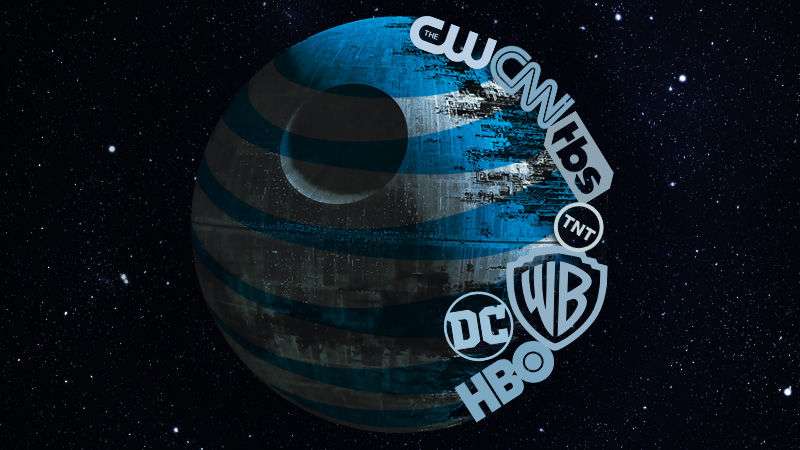
AT&T takes some Time Warner shows off Netflix, makes them exclusive to HBO Max

AT&T will start restricting some Time Warner shows to its own streaming service, despite previously telling the government that it would distribute Time Warner content as widely as possible.
WarnerMedia, the division AT&T created when it bought Time Warner, today announced a new online streaming service called “HBO Max.” HBO Max will debut in the spring of 2020 and include exclusives that will no longer be available on other streaming platforms.
HBO Max will have exclusive streaming rights to all episodes of Friends, The Fresh Prince of Bel Air, and Pretty Little Liars. Friends and Pretty Little Liars are currently available on Netflix, so they’ll both leave that service by the time HBO Max launches.
Since the HBO Max exclusives pertain only to streaming rights, the shows could still be available on cable TV services.
HBO Max will also have exclusive streaming rights to upcoming Warner Bros. series such as Batwoman and Katy Keene. AT&T also said HBO Max will have “exclusive movie production deals with Greg Berlanti… and Reese Witherspoon,” as well as HBO programming and various “Max Original” series that are in the works.
HBO Max will likely cost “slightly more” than the $14.99 per month currently charged for HBO Now, The Wall Street Journal wrote. HBO Now is primarily a vehicle to distribute HBO-produced shows as well as movies that HBO has streaming rights for. HBO Max will have a bigger library, roping in lots more Time Warner programming, with AT&T saying it will “premiere with 10,000 hours of premium content.”
What AT&T told the government
AT&T is making Time Warner shows exclusive to HBO Max even though it told government officials that it would continue to distribute Time Warner content as widely as possible.
In December 2016, when AT&T was seeking government permission to buy Time Warner, AT&T CEO Randall Stephenson told a Senate antitrust subcommittee the following:
Nor is there any reason to believe we could use Time Warner programming or AT&T networks to hurt related markets. Simply put, it would be irrational business behavior to do so. Time Warner’s programming is more valuable when distributed to as many eyes as possible. Moreover, in order to have great programming, it is imperative that we attract great creative talent to develop it. The best way to attract that talent is through widespread distribution of Time Warner content.
AT&T was able to complete its purchase of Time Warner without any merger conditions governing video distribution. Federal Communications Commission Chairman Ajit Pai allowed AT&T to avoid an FCC public interest review. The Department of Justice sued AT&T to block the merger, but a US District judge ruled against the DOJ, letting AT&T complete the merger in June 2018 without conditions.
The DOJ had argued that AT&T could harm rival online video services by withholding Time Warner shows and movies or by raising the prices online services have to pay to stream that content.
AT&T raised prices after merger
AT&T has also raised DirecTV Now streaming prices twice since completing the merger, despite telling a judge in a court filing that the merger would “enabl[e] AT&T and Time Warner to reduce consumer prices.” The latest DirecTV Now price cut was paired with the elimination of dozens of channels that aren’t part of Time Warner.
AT&T also didn’t keep a jobs promise related to a federal tax cut. AT&T said it would create 7,000 new jobs with the tax-cut savings—AT&T has cut more than 25,000 jobs instead.
With HBO Max, AT&T could once again take advantage of the FCC’s repeal of net neutrality rules. Pai’s FCC reversed a commission finding that AT&T violated net neutrality rules with its data-cap exemptions (aka “zero-rating”). The Pai FCC action gave AT&T and other carriers the green light to exempt their own video content from data caps and to charge other video companies for the same data-cap exemptions.




